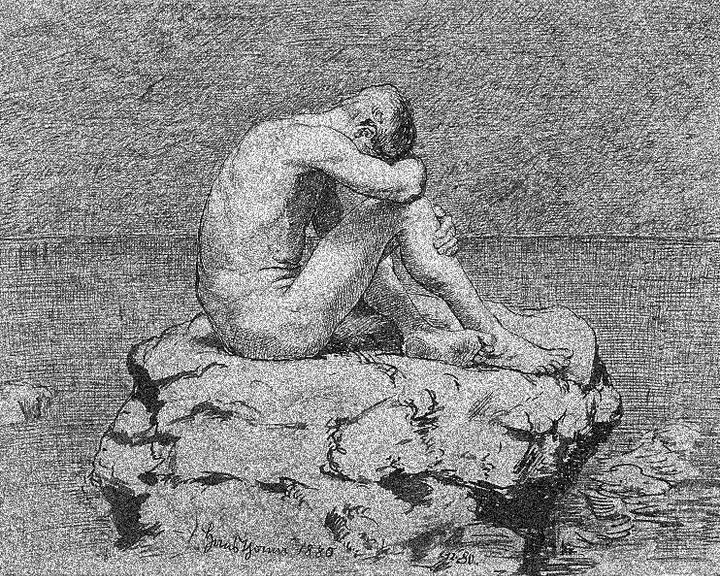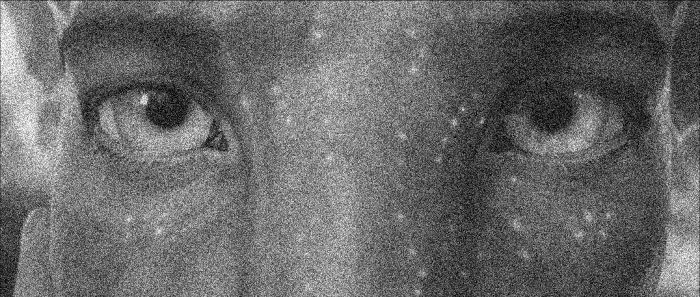The Hangover and Life as a Commodity
We have a common and stark expression of what it might feel like to be a commodity, and to have our past dominate our present: a really, really bad hangover.

Capitalism is a system where the past dominates the present, where “the tradition of dead generations weighs like a nightmare on the brains of the living.” Alongside occupying brain space, the past rules us in a much more direct way in Marx’s account. Past labor (in the form of capital) dominates present, living labor (i.e., of all of us). This layering up of the past and the present is inherent even in the structure of the commodity, the cell form of capitalist society. A commodity is a useful object (whose use is realized by present labor) that at the same time is exchanged according to the amount of past labor society needs to produce it.
Many philosophers working in the Marxist tradition who grappled with the commodity and this intertwining of the past and the present did so with the aim of placing the future under collective human control. The outstanding thinker in this tradition is the Hungarian Georg Lukács. In his History and Class Consciousness, and in particular his essay “Reification and the Consciousness of the Proletariat”, Lukács explores how being and consciousness develop (and are blocked from developing) in a class society.
Of the many arresting claims Lukács makes in “Reification and the Consciousness of the Proletariat”, one stands out with respect to his development of Marx’s analysis of the commodity: in a commodity, the worker recognizes himself and his own relations with capital, so that in effect the whole of society and personal identity inhere in each and every commodity we come into contact with. Hence our consciousness precisely is the self-consciousness of the commodity.
Although it might at first seem difficult to grasp what the self-consciousness of the commodity might actually be or feel like, in fact we do have a common and stark expression of what it might feel like to have our past dominate our present. This is exactly what a really, really bad hangover is: our present (our feelings, our thoughts, our worries and fears, and our physical condition) is dominated by our (very recent) past. Even describing a hangover as “the morning after the night before” reinforces this sense that the present is in fact constituted, when being hungover, by the past.
Maybe, then, we should take seriously the possibility that the hangover reflects the basic structure of human experience and consciousness under capitalism. If it does, then we should pay attention to writers who try to tell us something about what a hangover is. Most philosophy that deals with the pleasures or aesthetics of drinking simply ignores the hangover (although some are willing to explore the perverse pleasures and insights that could be gained from a good katzenjammer). Conservative philosopher Roger Scruton’s I Drink Therefore I Am: A Philosopher’s Guide to Wine and Barry Smith’s edited collection Questions of Taste: The Philosophy of Wine may talk about the pleasures of boozing but do not have any entries in their respective indexes for the hangover—and neither does a collection called The Psychology of Wine: Truth and Beauty by the Glass. Perhaps this disinclination to think about being hungover started quite early in the history of philosophy: we do not get to see much of the introspection of the participants that surely happens the morning after Plato’s boozy Symposium.
One writer who does understand the hangover—quite possibly, due to extensive personal experience (a collection of his essays and drinks recipes is called Everyday Drinking)—is the British novelist, Kingsley Amis. Calling the hangover “a great restraining influence on our civilization,” Amis produced (in his 1954 novel Lucky Jim) easily the best description of the hangover in Anglophone literature:
Consciousness was upon him before he could get out of the way; not for him the slow, gracious wandering from the halls of sleep, but a summary, forcible ejection. He lay sprawled, too wicked to move, spewed up like a broken spider-crab on the tarry shingle of the morning. The light did him harm, but not as much as looking at things did; he resolved, having done it once, never to move his eyeballs again. A dusty thudding in his head made the scene before him beat like a pulse. His mouth had been used as a latrine by some small creature of the night, and then as its mausoleum. During the night, too, he’d somehow been on a cross-country run and then been expertly beaten up by secret police. He felt bad.
But Amis’s more significant contribution is his distinction between the physical hangover (as described above) and the metaphysical hangover, which is defined by a profound feeling of anxiety—that “your family and friends are… leagued in a conspiracy of barely maintained silence about what a shit you are”—and the idea that you have now come to see life as it really is. It is this anxiety that constitutes the truly bad (and truly meaningful) hangover, although it is deeply personalized. The hangover foregrounds my feelings about my individual moral failings—I am a shit, I behaved so stupidly—and any deeper structures that got me to that position are absent. It’s an individualizing experience.
Norwegian has a word for one particular aspect of the angst related to a hangover, when you cannot fully recall what you might or might not have done in your drunken state—fylleangst. If anxiety is an autonomized fear—that is, fear detached from its ostensible object—then the meaning of fylleangst is revealed by considering the structure of the commodity and capitalist society. It is the all-pervasive and initially hidden domination of the present by the past on which capitalist society is based and that the hangover makes briefly sensible in a directly personal way. There is something to the idea that a hangover allows us to see life as it really is. Moreover, the individualized experience of the hangover may have a wider significance: it relates to a structural process that produces this anxiety while making it appear as a deeply individual experience.
Since we live in a society whose shape mirrors that of a hangover, what does this suggest about the ways we try to escape or undo our drinking pasts? Truly magical thinking is rare in contemporary society, but we can still find it in the recourse to marvelous medicines as “miracle” hangover cures. The last remaining enchanted corner of capitalist society is the possibility that a raw egg in your beer, a perfect Bloody Mary, or a van giving you a hangover IV drip will erase the past of the night before and allow you to be recovered in the present. We could even take this raw egg as the wellness industry in microcosm, as the magic bullet (or “crazy trick”) that offers a quick path out of physical and metaphysical struggle and back to a prelapsarian wholeness. Of course, this magical thinking is just the counterpart of the sort of utopianism that ignores the power of the past to determine our present and instead wishes to skip without conflict to a harmonious and settled future. Sadly, there is no way out except through. We have to face up to our hangover, just as we have to reckon with the domination of our present labor by our past labor, if we want to do anything about it.
■
George Hoare is a host of the global politics podcast, BungaCast, and co-author of The End of the End of History (Zero Books, 2021).



